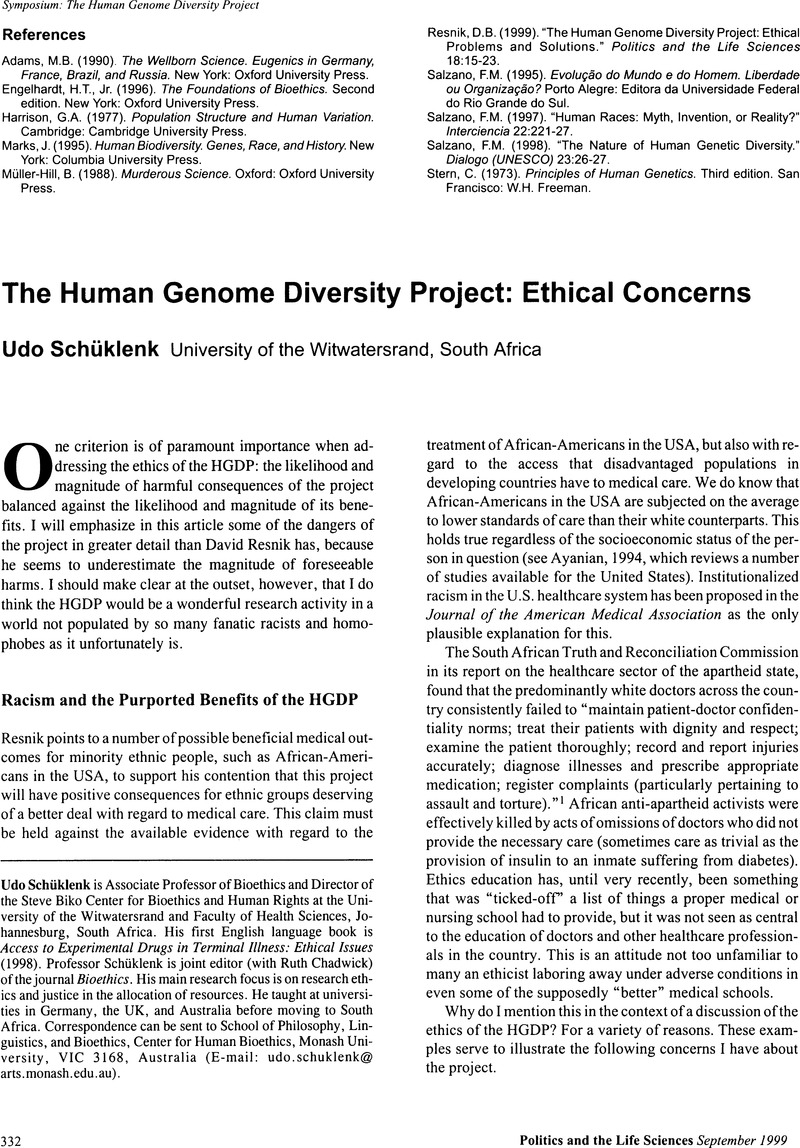No CrossRef data available.
Article contents
The Human Genome Diversity Project: Ethical Concerns
Published online by Cambridge University Press: 17 May 2016
Abstract
An abstract is not available for this content so a preview has been provided. Please use the Get access link above for information on how to access this content.

- Type
- Symposium: The Human Genome Diversity Project
- Information
- Copyright
- Copyright © Association for Politics and the Life Sciences
References
Ayanian, J.Z. (1994). “Race, Class and the Quality of Medical Care.” Journal of the American Medical Association 271: 1207–8.Google Scholar
British Medical Association (1999). Biotechnology, Weapons and Humanity. Harwood Academic Publishers.Google Scholar
Kerin, J. (1999). “Genetic Research and Biological Weapons: The Ethics of the Human Genome Project.” Monash Bioethics Review 18 (3): 1–10(suppl).Google Scholar
Menon, M.G.K. et al., eds. (1999). Human Genome Research: Emerging Ethical, Legal, Social and Economic Issues. New Delhi: Allied Publishers.Google Scholar
Schüklenk, U. (1998). “Unethical Perinatal HIV Transmission Trials Establish Bad Precedent.” Bioethics 12: 312–19.CrossRefGoogle ScholarPubMed
Schüklenk, U. (1999). “South African Government's Response to AIDS Crisis Is Sound.” British Medical Journal 318: 1143.Google Scholar
Schüklenk, U. et al. (1997). “The Ethics of Genetic Research on Sexual Orientation.” Hastings Center Report 27 (4): 6–13.CrossRefGoogle ScholarPubMed
Shriver, M.D. et al. (1997). “Ethics-Affiliation Estimation by Use of Population-Specific DNA Markers.” American Journal of Human Genetics 60: 957–64.Google Scholar


